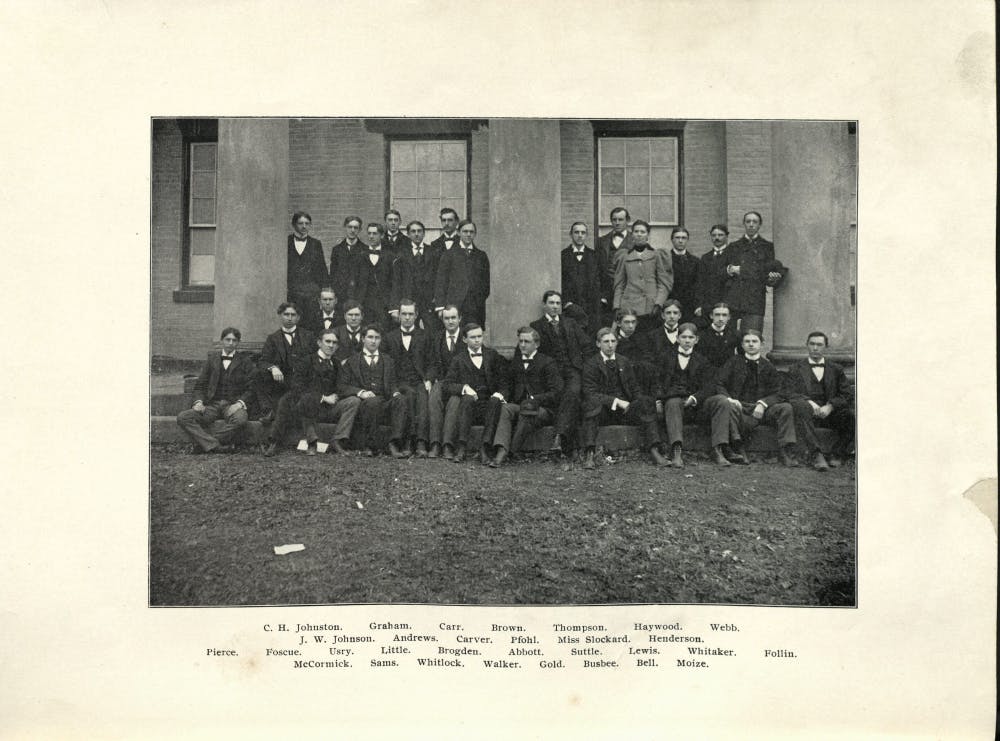With conversations of race and gender, historical context has become increasingly relevant. Because women comprise 58 percent of UNC’s undergraduate enrollment, it can be perceived that the discussion of women on campus is over. Though issues facing women at UNC have changed since its first female graduated in 1898, problems still persist.
Edwin Alderman, UNC president from 1896 to 1900, first convinced the Board of Trustees to admit women in a post-graduate program in 1897. While Marcy McRae was the first female registered, Sallie Walker Stockard is UNC’s first female graduate. Housed in Wilson Library's Southern Historical Collections is Stockard’s autobiography, “Daughter of the Piedmont,” in which she recounts her time in Chapel Hill.
“I was filled with more than a little apprehension to be entering a University bound by tradition to frown upon coeducation and possibly not yet ready to break from tradition,” Stockard said in her book.
She received a Bachelor of Arts degree in 1897 from Guilford College in Greensboro. She went on to receive two degrees from UNC: an additional bachelor's degree in 1898 and a master’s degree in 1900. She wrote that UNC's former president Edwin Alderman of Alderman Residence Hall was instrumental during her time completing her degree.
“President Alderman so introduced me and when he handed me the diploma he said, ‘With little, you have done much,’” Stockard wrote when recalling her graduation.
What Alderman said would soon become true for more women wanting to attend UNC. During the 20 years after Stockard’s graduation, there was an average increase of 10 female students per year.
The next step was finding room for all of them.
Taylor Livingston, a lecturer in anthropology and research specialist, is one of the women behind the Priceless Gem’s walking tour, “Digging in Our Heels: a herstory of women at the University of North Carolina at Chapel Hill." She said finding a living arrangement was key to the progression of a woman’s place on campus.
“Space on campus for women was always a huge issue, so the founding of Spencer dormitory was really huge,” Livingston said. “It would be something that, throughout the history of women at UNC, would always be an issue.”




